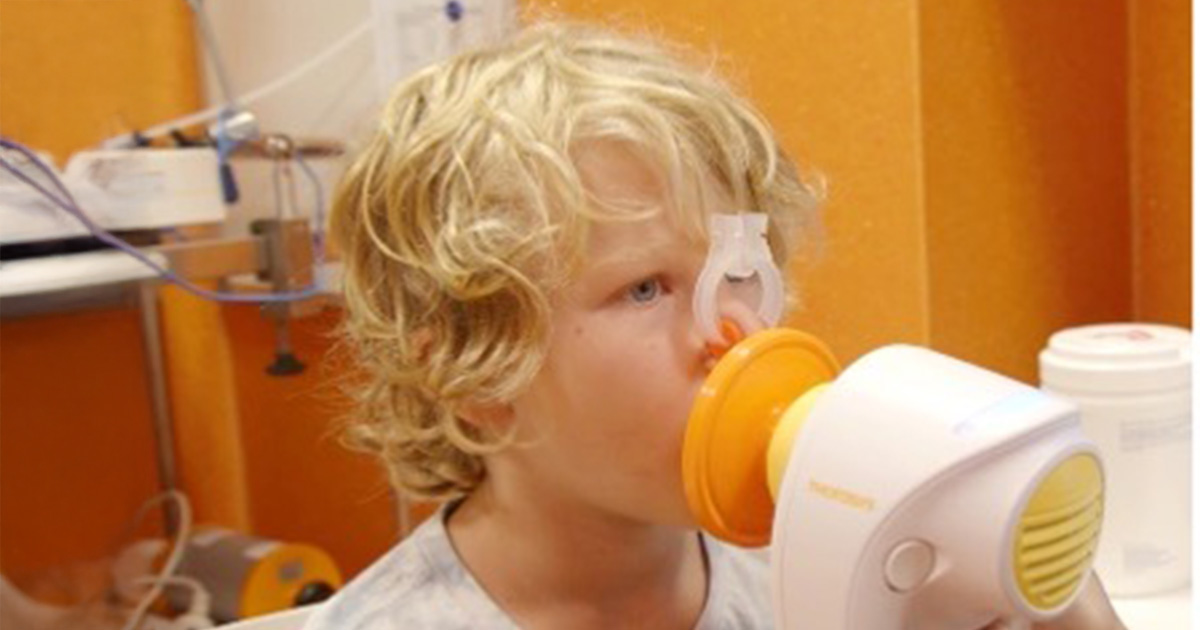
New hope is on the horizon for people living with cystic fibrosis, with three researchers from The Wal-yan Respiratory Centre – a powerhouse partnership between The Kids Research Institute Australia, Perth Children’s Hospital Foundation and Perth Children’s Hospital - receiving funding to advance innovative projects through the WA Cystic Fibrosis Research Collaborative Program 2025.
Dr Yuliya Karpievitch, AI and Data Analytics Lead, Respiratory Research at The Kids and lecturer at The University of Western Australia and Curtin University, received $450,000 in funding for the project PhageBnB: Finding the right phage to treat cystic fibrosis lung infections anywhere in the world, as part of Project Stream 3: Fellowships.
“My project aims to restore hope in the future of CF lung health, by developing tools to support the introduction of phage therapy into routine clinical management,” Dr Karpievitch said.
Her project will involve developing an artificial intelligence-based solution to shorten the process of matching the right phage – a virus that only kills bacteria and can be used to safely, effectively treat CF lung infections – to the right bacteria. This technology will be incorporated into an online platform called ‘PhageBnB’- an ‘Airbnb’ for phages, to provide a global network connecting phage providers.
Dr Renee Ng, WA Early Career Child Health Research Fellow in the Airway Epithelial Research team at the Wal-yan Respiratory Research Centre and Honorary Fellow at UWA Medical School, has been awarded a $180,000 grant as part of Project Stream 2 - Research Innovation
Dr Ng’s research project, Exploring the interactions of bacterial cloaking antibodies and phages, will address the threat of antimicrobial resistance (AMR) among vulnerable groups like people with cystic fibrosis (CF).
Her team is aspiring to understand the interactions between phages and antibodies, creating a safe and effective therapy to shorten hospital stays, save lives, and reduce healthcare costs associated with traditional treatment strategies.
The project is in collaboration with Associate Professor Timothy Wells (University of Queensland) and Dr Emma Ledger (UQ), Associate Professor Anthony Kicic (The Kids), Dr Douglas Forrester (Sir Charles Gairdiner Hospital, Curtin University, UWA), Professor Christopher Blyth (The Kids, UWA) and Mitch Messer (The Kids).
Senior Research Officer Dr Kak Ming Ling – a member of The Kids Wal-yan Respiratory Research Centre’s Airway Epithelial Research team, an Adjunct Research Fellow at Curtin University’s School of Population Health and an Honorary Research Fellow at The University of Western Australia – has been awarded a $200,000 grant as part of Project Stream 4: Collaborative Grants.
Dr Ling’s project, Fighting rare lung infections in cystic fibrosis with a promising new antibiotic, will investigate how the antibiotic Lysocin E could improve treatment options for people with cystic fibrosis who have non-tuberculous mycobacterial (NTM) infections.
“This research could lead to shorter, safer, and more effective treatments for people with CF,” Dr Ling said.
The project is in collaboration with Dr David Foley (Clinical Microbiologist from PathWest Laboratory Medicine, UWA), Professor Hiroshi Hamamoto and Assistant Professor Dhammika Leshan Wannigama (Yamagata University in Japan), Professor Peter Wark (The Alfred hospital) and Dr David Hancock (Perth Children's Hospital, UWA).
Professor Hiroshi Hamamoto, who discovered Lysocin E, will provide the compound for the study. Associate Professor Anthony Kicic and Mitch Messer (Community Involvement Coordinator) will also contribute to the study. These grants are co-funded through a partnership with the Future Health Research and Innovation (FHRI) Fund and Cystic Fibrosis Western Australia, in collaboration with Conquer Cystic Fibrosis, reflecting a shared commitment to advancing research that improves the lives of people with CF.
